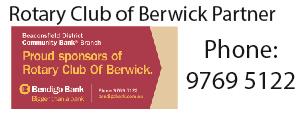Forum insight: Dr Michael Carr-Gregg
Our first speaker was Dr Michael Carr-Gregg. Dr Michael talked about the state of our youth in Australia. He drew his observations from several respected sources, many are listed below for your referral.
In Summary of Dr Michael's presentation:
Young Australians today are worried about coping with stress (38.4%), school or study problems (33.6%), body image (26.5%) and depression (20.0%). He noted that suicide rates in young women in particular have risen significantly in just 10 years. Australia's suicide rate is at it's highest level in 13 years. Suicide accounts for 33% of deaths among Australians aged 15-24. He listed the seven signs of depression in youth, but I have listed what I have found.
Sadness or hopelessness
Irritability, anger, or hostility
Tearfulness or frequent crying
Withdrawal from friends and family
Loss of interest in activities
Changes in eating and sleeping habits
Restlessness and agitation
Feelings of worthlessness and guilt
Lack of enthusiasm and motivation
Fatigue or lack of energy
Difficulty concentrating
Thoughts of death or suicide
Dr Michael then moved into the area of self harm (usually cutting) and for girls, it does not look good. He made the point that girls who self harm are more likely to know of others who self harm. In a two year survey of 6300 families, 1 in 10 girls were self harming.
Dr Michael listed the most common disorders among young Australians 4-17 and these are:
ADHD - 298,000
Anxiety disorders - 278,000
Major depressive disorder - 112,000
Conduct disorder - 83,600
Roy Morgan research shows : the proportion of Australians aged 18 and over who reported experiencing an anxiety condition in the last 12 months has grown by almost 40% in the last four years.
So the facts about how bad it is were presented. What is the solution?
Resilience was the next topic covered. Resilience:“…is the human capacity to face, overcome, be strengthened by and even be transformed by adversity.
Firstly Dr Michael drew on a paper produced in the 1970s by Professor Emmy Werner which studied a population of children in Kauai, Hawaii. Basically speaking, the population of Kauai were largely unemployed and destitute with no hope of a future. The study was on the kids who were growing up in this environment. The result were that 2/3rds exhibited destructive behaviours as teens (chronic unemployment, substance abuse, teen pregnancy) but 1/3rd did not exhibit destructive behaviours.
There are five factors identified that the 1/3rd who did not exhibit destructive behaviours posessed. These are
Social/ Emotional competencies: Basic social confidence and interaction.
Positive self talk: Self-talk is basically your inner voice, the voice in your mind which says things that you don’t necessarily say out loud. Often self-talk happens without you even realising it and can be a subtle running commentary going on in the background of your mind. But what you say in your mind can determine a lot of how you feel about who you are.
Islands of competence: Focusing on the positive areas of competence
Spirituality: The ability to believe in something bigger than themselves.
Charismatic Adult: Adult role models who the children emulate or learn from.
Dr Michael Carr-Gregg presentation links:
http://www.adelaidenow.com.au/news/breaking-news/one-in-four-teenage-girls-self-harm-govt/story-fni6ul2m-1227473639010
http://oyh.org.au/our-services/training-resources/free-downloads-youth-mental-health-resources/fact-sheets
http://oyh.org.au/sites/oyh.org.au/files/factsheets/oyh_fs_selfh.pdf
https://orygen.org.au/Media/Looking-the-Other-Way-Young-People-Self-Harm.aspx
https://orygen.org.au/About/News-And-Events/Looking-the-Other-Way-Young-People-and-Self-Harm
https://aifs.gov.au/cfca/publications/resilience-still-useful-concept-when-working-child
http://www.actionforhappiness.org/
https://www.psychologytoday.com/blog/raising-resilient-children/201201/identifying-and-reinforcing-islands-competence-in-children
https://www.missionaustralia.com.au/
https://www.missionaustralia.com.au/publications/research/young-people/doc_download/399-youth-survey-mental-health-report-2015
https://www.missionaustralia.com.au/publications/research/young-people/doc_download/413-mission-australia-youth-survey-2015
http://pandora.nla.gov.au/pan/110066/20091112-1633/www.youth.gov.au/Documents/YoungPeopleReport.pdf
http://www.smh.com.au/comment/the-key-to-stopping-suicide-lies-in-community-participation-20160310-gnfd7s.html
other links:
http://www.helpguide.org/articles/depression/teen-depression-signs-help.htm
http://www.dailymail.co.uk/news/article-3485146/Australian-suicide-rates-soar-13-year-high-Australians-15-44-dying-suicide-cause.html
https://denisannthomas.wordpress.com/tag/emmy-werner/
https://en.wikipedia.org/wiki/Psychological_resilience
http://www.pathwaysrtc.pdx.edu/pdf/fpS0504.pdf
https://aifs.gov.au/cfca/publications/resilience-still-useful-concept-when-working-child/where-did-concept-come-brief-history
https://www.kidsmatter.edu.au/early-childhood/kidsmatter-early-childhood-framework/component-2-developing-childrens-social-and
http://www.casel.org/social-and-emotional-learning/core-competencies/
http://au.reachout.com/what-is-self-talk

